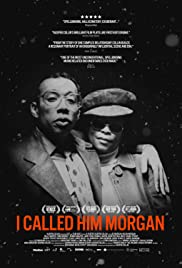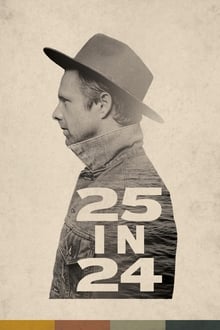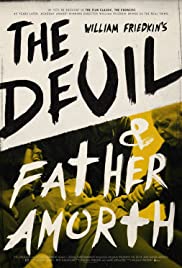
Reflecting Peter O’Toole’s theatrical legacy, this feature documentary is structured into four acts, each introduced by a quote about O’Toole that encapsulates his life during a specific period.
You May Also Like

A documentary on the life of Texas filmmaker Eagle Pennell.

Kirsty Young, Huw Edwards, Sophie Raworth and Claire Balding are your guides for the historic coronation of Their Majesties King Charles III and Queen Camilla on Saturday 6 May. From her studio outside Buckingham Palace, Kirsty will be joined by guests, including friends and colleagues of the King and Queen, who will share their personal insights. Throughout the morning, a series of films will explore the King’s passions, and a broad range of experts will join Kirsty to provide analysis of this new chapter in British history. Across the capital, a team of presenters will be in key locations to report and commentate throughout the day as events unfold. As the armed forces prepare for one of the largest military parades in living memory, JJ Chalmers will speak to servicemen and women from across the UK and the Commonwealth as they arrive in London to take their positions.

Antisemitism in the US and Europe is spreading and is seemingly unstoppable. Andrew Goldberg examines its rise traveling through four countries to follow antisemitism and their victims, along with experts, politicians and locals.

In the follow up to Close Encounters of the Fifth Kind Dr. Steven Greer goes deeper into the practice of CE-5 with Investigative Filmmaker Serena DC. Join Dr Greer as he reveals how to have your very own Close Encounter of the Fifth Kind.

Part jazz history, part true-crime tale, Kasper Collin’s new documentary employs extensive archival footage and new interviews to tell the tragic story of the magnificently talented trumpeter Lee Morgan and his common-law wife Helen, who murdered him in a New York bar in 1972.

On October 24 at 10am, Jon Foreman and his friends embarked on a music journey throughout San Diego aiming to play 25 shows in 24 hours. With venues including a children’s hospital, a wedding, and a Mexican restaurant, this 24-hour musical experience explores the polarity of everyday life, taking viewers to places that only music can go. Through his journey, Foreman discovers that the road less traveled is always worth the risk, and sometimes the only way to hold on is to let go.

Each home has a built in pool or water tank that lies partly inside, partly outside its’ walls… A continuous stream of spring water is piped right into a basin, so freshwater is always available. People rinse out pots in the tank and clean their freshly picked vegetables. If they simply pour the food scraps back in the water, they risk polluting the whole village supply. However, carp can scour out even the greasy or burnt pans. They do the washing up in Satoyama villages. This traditional arrangement is called the riverside method. It’s used all over Japan. Cleaned up by the carp, the tank water eventually rejoins the channel.

Back Issues is the definitive documentary of porn magazine Hustler, from its nightclub inception as it adapts to pornography in the 21st century. Director Michael Lee Nirenberg’s father was was one of the original art directors in the 1970s and 80s. Back Issues is a complete look at the personalities and features that made this the most offensive magazine of all time. The story is told by its publisher as well as the editors, cartoonists, models, attorneys, art directors and cultural figures for the first time ever.

In 2003, British glam rockers The Darkness took the world by storm with their smash hit single “I Believe in a Thing Called Love”. Then at the height of their fame, the band split up and fell into obscurity. 20 years on from their platinum-selling debut, Justin Hawkins, his brother Dan, eccentric bassist Frankie Poullain, and new drummer Rufus Taylor tell their story.

Following some of the world’s top snowboarders and skiers on the hunt for their next thrill, Warren Miller’s film travels from Alaska to Switzerland to shoot world-class athletes taking on nature’s riskiest challenges. With jaw-dropping action from the likes of World Cup champ Jeremy Bloom, big-mountain skiers Jeremy Nobis and Seth Morrison, and ski-base jumping innovator Shane McConkey, Miller captures a wealth of unimaginable moments.

William Friedkin attends an exorcism with Father Gabriele Amorth, as he treats an Italian woman named Cristina for the ninth time. Prior to filming, Cristina had purportedly been experiencing behavioral changes and “fits” that could not be explained by psychiatry, and which became worse during Christian holidays.

A prizefight between underdog Steve ‘The Celtic Warrior’ Collins and champion Chris ‘Simply the Best’ Eubank grips and encapsulates an entire nation as it emerges from depression towards previously unimagined prosperity.